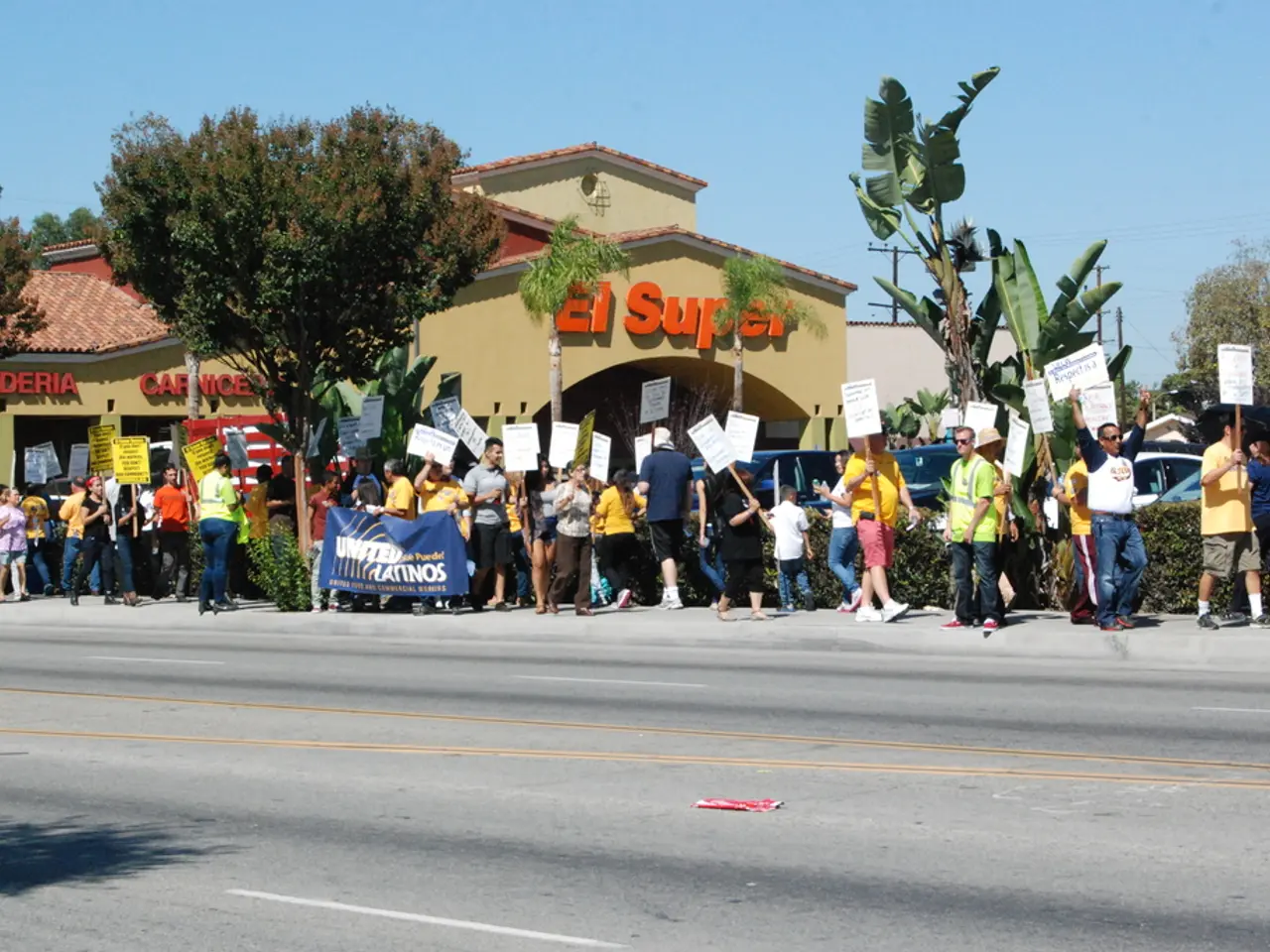Navigating Through Uncertainty: Germany's SPD Strives to Define Its Path Forward
Germany's SPD Debates Future Direction Amidst Peacekeeping Manifesto and Electoral Challenges
The Social Democratic Party (SPD) of Germany is grappling with a significant internal debate as it prepares for its party conference at the end of June. The focus of this debate revolves around the party's future direction, particularly in regards to peace, security, and defense policy, and the role of Ostpolitik in shaping this direction.
A group of SPD party officials recently published a manifesto on peacekeeping in Europe, denouncing the rise of factions advocating for rearmament and blaming the West for Russia's autocracy and imperial expansion. This manifesto invokes the spirit of Ostpolitik, a policy pioneered by Willy Brandt, Germany's first SPD chancellor, aimed at détente, reconciliation, and normalized relations with East Germany and the Soviet bloc.
However, the current debate within the SPD is complex. The party is balancing its historic pacifist and détente-oriented approach with contemporary demands for increased military spending and a stronger NATO role. This shift represents a departure from the older SPD ideal of cautious engagement with Russia, reflecting both internal and external pressures.
Internally, there is a debate over how to reconcile Brandt’s legacy of peace-oriented diplomacy with realistic security threats. Externally, SPD policymakers have joined other German parties in endorsing a more confrontational posture against Russia. Some critics interpret this as a "reckless programme of rearmament," accusing the government of preparing for a potential conflict rather than just defense.
The media characterizes the signatories of the manifesto as the "left wing" of social democracy, while their advocacy for pragmatic arrangements with authoritarian military and police states is traditionally associated with "realpolitik" or the "right wing." A degree of thoughtfulness should not be seen as a flaw in pursuing a policy of détente with such states.
The SPD's debate about future direction centers on maintaining Brandt’s diplomatic and peaceful spirit while adapting to current security realities that demand stronger defense and NATO integration. This involves moving from a historical policy of détente to a pragmatic acknowledgment of the need for military readiness and deterrence in the face of Russian aggression, marking a complex evolution of SPD identity and strategy.
The party must act as a clear counterweight to right-wing authoritarianism, while simultaneously seeking to engage respectfully with those susceptible to far-right ideologies. The benefits of social democracy should be communicated clearly to its own constituents through concrete measures. However, the party faces a significant lack of clear direction; there is no consensus on the future trajectory of contemporary social democracy.
The party suffered an electoral debacle in February, securing only 16.4 percent of the vote. Despite securing key ministries and policy successes, the party conference is unlikely to be a resounding triumph due to internal disarray. According to Henning Meyer, the need for change, emotions, and the charisma of candidates are essential factors for success today.
The manifesto suggests that the invasion of Ukraine could be resolved through security arrangements with Putin and his associates. Realism suggests that in an emergency, one must negotiate with the devil, and moral clarity and prudence are not contradictory. A democratic socialism that resists the temptations of authoritarianism will never sacrifice the values of freedom, fundamental rights, human rights, and political freedoms for the ideals of a formed society.
The selection of governmental personnel has alienated important factions within the party, leading to a disconnect between members and key power brokers. Social democracy is expected to serve as a beacon of reason, led by individuals whose competence and leadership are undisputed and who are trusted by the political center.
Despite the concerns within the SPD party, the manifesto's stance on peacekeeping in Europe is rather adventurous, raising hopes for a more proactive and diplomatic approach to resolving international conflicts. A compelling overall image is necessary, one that embodies modernity and captivating charisma, to unite the party and inspire the German electorate. The word "freedom" does not appear in the manifesto, despite Willy Brandt's famous quote emphasizing its importance. This omission, along with the internal debates and electoral challenges, underscores the complexity of the SPD's current predicament.
- The ongoing debate within Germany's SPD party concerning their future direction encompasses discussions on policy and legislation, particularly in regards to peacekeeping, security, and defense policy, which aligns with the general news topic of war and conflicts.
- The complex nature of the SPD's debate on their future direction involves finding a balance between their historic peace-oriented approach and contemporary demands for increased military spending, stronger NATO presence, and diplomatic engagement with authoritarian states, inevitably intertwining these discussions with the broader political arena.






